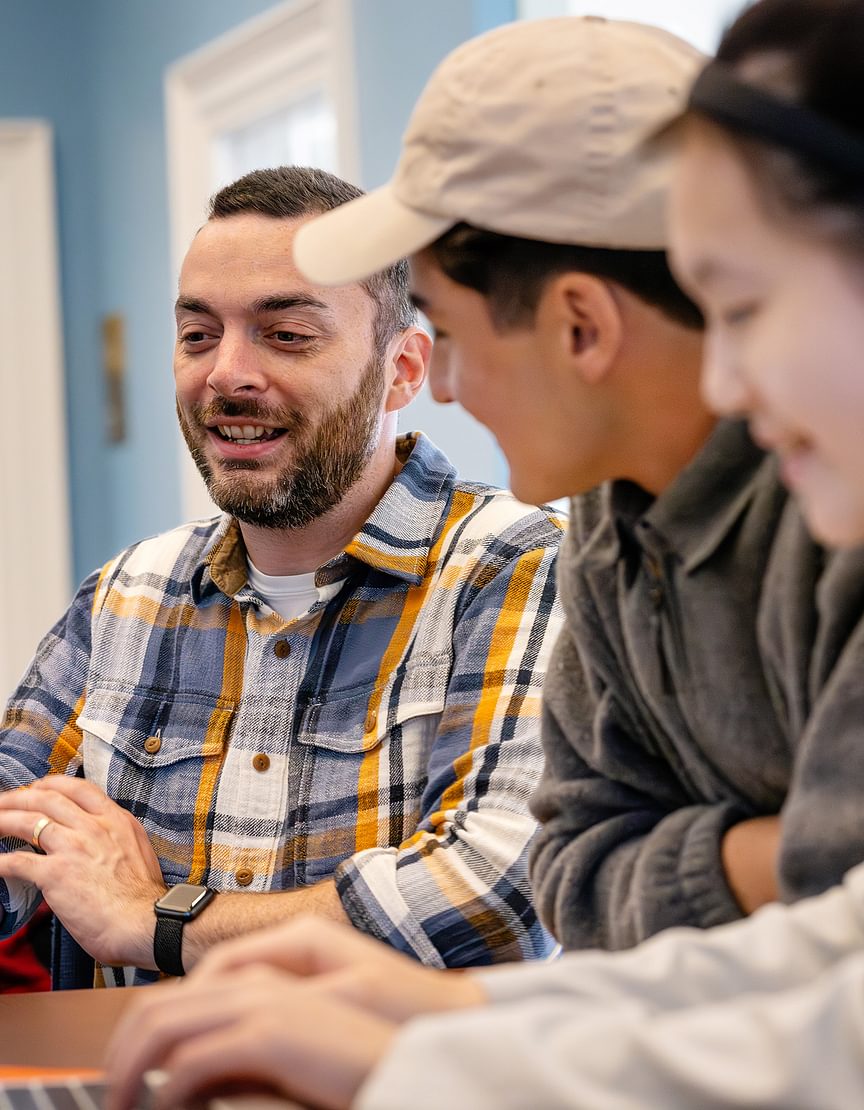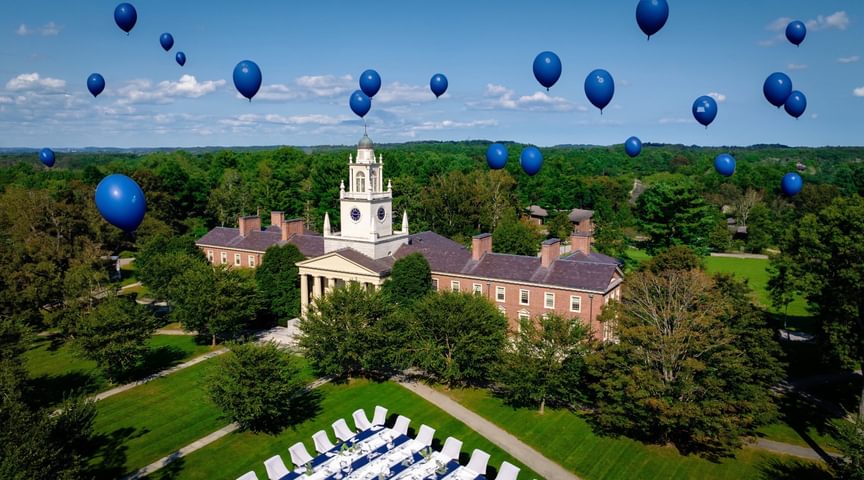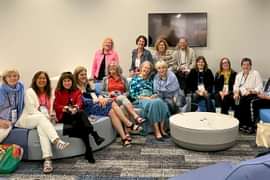
November 12, 2024
AI in the Classroom and Beyond
Andover classrooms are on the cusp of an AI-powered transformationImagine a world in which a computer can write a villanelle or conjure a bustling Roman marketplace in less time than it takes to write your name on a whiteboard. This is the potential of generative artificial intelligence, and educators at Andover and throughout the world are exploring how to implement it effectively and ethically.
Nicholas Zufelt, instructor in mathematics, statistics, and computer science, believes the answer lies at the very core of education. “Teaching is about guiding the next generation to become capable creators of thought,” he says. With that in mind, he treats AI as a tool to enhance learning. In his computer science classes, for example, students use AI to generate code, then dissect it line by line to foster a deeper understanding. Zufelt pairs these assignments with oral assessments. “Nearly each week,” he says, “I have a short discussion with each student to make sure they can explain their understanding of the code they submit.”
Similarly, Claire Gallou, instructor and chair in French, has students use AI to generate paragraphs that highlight specific grammar points. She then asks them to identify and explain the grammar used. While optimistic about utilizing the technology to go further in the thinking, study, practice, and understanding of a language, Gallou is also concerned. Yes, students will have fewer opportunities to cheat if they study what AI constructs, but it also means they will no longer be producing their own work. “We need to make sure primary production remains,” she says.

Last fall, Gallou’s colleague Patrick Pothel, also an instructor in French, attended several AI workshops at the ACTFL (American Council on the Teaching of Foreign Languages). One vital takeaway? As an educator, it is his job to teach students that AI is to be used as a complement to the learning process, not a tool that hinders intellectual growth. “That in itself is a huge challenge,” Pothel says, “given the amount of pressure Andover students are under to constantly produce.”
From English to science to art, teachers in disciplines across campus are experimenting with AI’s potential. Amanda Chiang ’24 reports that an English teacher recently encouraged her to use AI to explore concepts outside of her personal experiences and knowledge domain, and Zufelt invited her computer science class to use ChatGPT, as long as they were transparent about their use of generative AI.
The ethical implications of AI are front and center at the Academy. Sergia Hay, instructor in philosophy and religious studies, has students debate the potential benefits and drawbacks of AI-generated deepfakes, prompting them to consider technology’s broader societal impact. Kiran Bhardwaj, Hay’s colleague in the Department of Philosophy and Religious Studies, urges her students to reflect on what it means to be a responsible agent in a world increasingly shaped by AI.
Teaching is about guiding the next generation to become capable creators of thought.
”Leo Calleja, instructor and chair in English, generates related conversations in his courses and thinks a good bit about the impact of AI on the development of students’ voices. “A core tenet in the English department and the humanities,” he says, “is getting students to think metacognitively about their own work.” He emphasizes how important it is to consider how AI’s “voice,” if it even has one, and its workings will impact students’ efforts to discover and refine their own.
While AI integration in Andover classrooms is still in its nascent stage, the potential for this technology to fundamentally reshape education is undeniable. Caroline Odden, dean of studies and instructor in physics, acknowledges the need for continued conversation between teachers and students and encourages teachers to experiment with the various applications. “As we move forward,” she says, “it’s crucial to remember that while AI is a tool that can augment both teaching and learning, the irreplaceable human element will always be at the core of an Andover education.”





